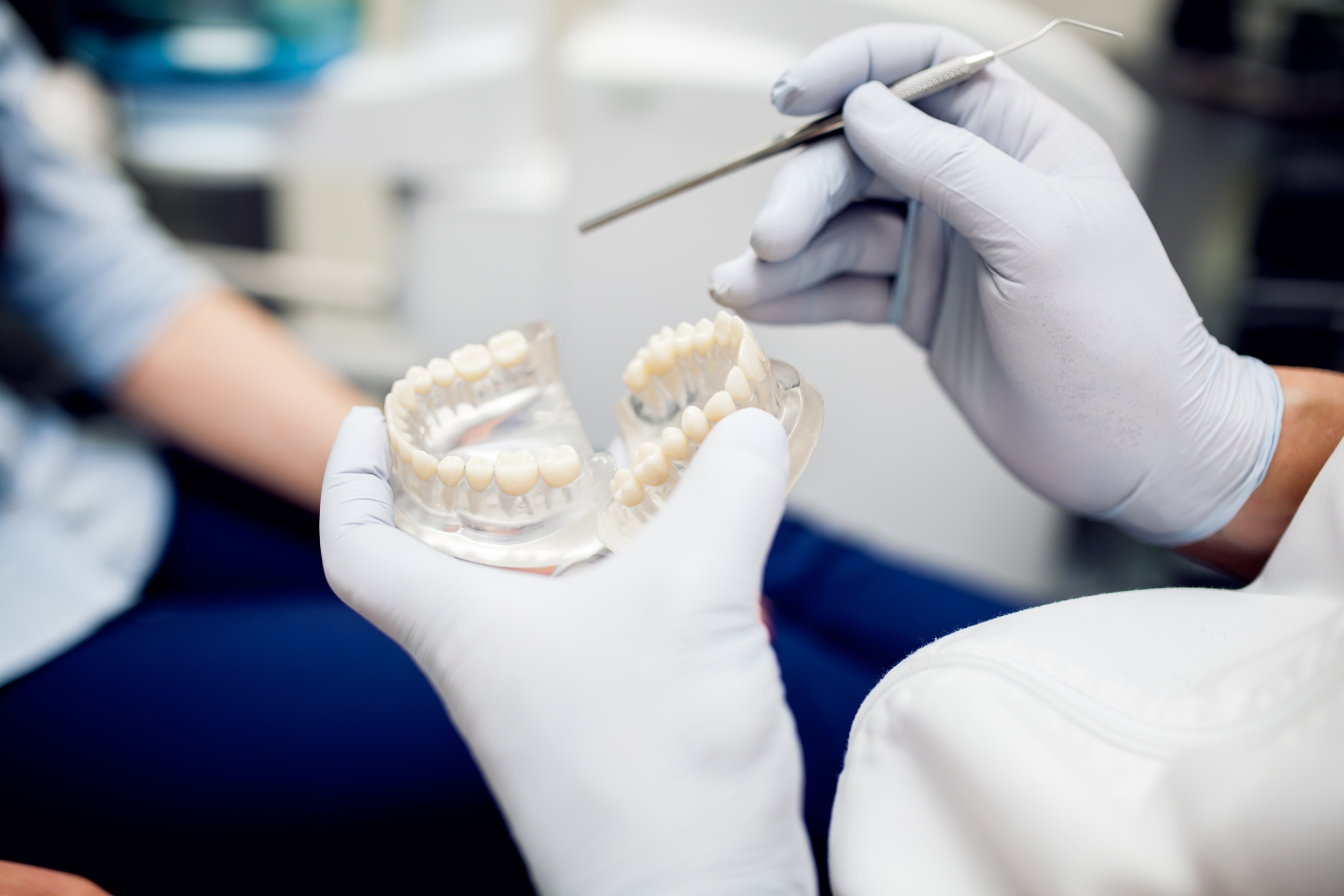
What Are Dental Crowns?
Dental crowns – commonly used after root canals – are tooth-colored caps custom-made to fit perfectly over damaged, decayed, or weakened teeth. Crowns are designed to protect the remaining tooth and restore its shape, size, strength, and appearance.
Why Opt for Dental Crowns?

Regain Full Function of a
Damaged Tooth
Compromised teeth make chewing, biting, and speaking difficult – dental crowns can restore the tooth’s full function and expand its life.

Get a Long-Lasting
Tooth Restoration Solution
Dental crowns are designed to last for 10-15+ years with proper care, making them one of the most cost-effective solutions for dental restoration.

Improve Your
Mouth’s Aesthetic
Crowns are custom-made to blend seamlessly into your existing teeth and cover imperfections and discoloration to provide a natural, attractive look.
The Step-by-Step Dental Crown Procedure
at The Dental House
01
Initial Consultation
Dr. Vu will examine your teeth and X-rays to determine if a dental crown is the best solution for you. We’ll discuss your treatment options, cost, and the extent of the procedure to restore your teeth.
02
Prepare the Tooth
Local anesthesia will be applied to numb the area around your tooth. Your tooth’s enamel will then be shaped to make room for the crown.
03
Take Impressions
We will take impressions of the tooth and surrounding area to create the blueprint for your crown.
04
Fabricate the Crown
Your impressions are sent to a dental lab to craft the dental crown. This process takes a few days/weeks.
05
Temporary Crown
While your permanent crown is being fabricated, we will place a temporary crown over the prepared tooth to protect it.
06
Fit the Crown
Once your permanent crown is ready, we will take another appointment to remove the temporary crown and cement the new one onto your prepared tooth.
07
Final Adjustments
We will check your bite impression to make sure the crown is perfectly aligned and looks natural with the rest of your teeth.
08
Follow Up Appointment
Dr. Vu may recommend a follow up appointment to monitor the crown and make sure it’s working properly.
Frequently Asked Questions
How long does a dental crown procedure take?
Dental crown procedures generally require two visits. The first visit involves tooth preparation, impressions, and placing a temporary crown – which usually takes about an hour. The second visit involves cementing the permanent crown. This appointment also takes about an hour.
How long do dental crowns last?
Dental crowns can last anywhere from 10 to 15 years or longer. This depends on the material used, the quality of care, and your oral hygiene habits. Regular dental check-ups and cleanings can help extend the lifespan of the crown.
Are dental crowns painful?
We won’t tell you the dental crown procedure is “comfortable” – but the use of local anesthesia to numb the tooth and surrounding area does a lot to eliminate pain. You may experience some discomfort or sensitivity after the anesthesia wears off, particularly if the tooth was extensively prepared, but this typically subsides within a few days.
How long does a crown take to heal?
Healing from a dental crown procedure is very quick. Most patients can return to normal activities immediately after the procedure. You may experience mild sensitivity or discomfort for a few days as the tooth adjusts to the new crown, but this is usually manageable with over-the-counter pain relievers.
Does a crown require a root canal?
A dental crown does not always require a root canal. A root canal is only needed if the tooth’s pulp is infected or severely damaged. In cases where the tooth is simply cracked, decayed, or weakened – but the pulp remains healthy – a crown may be ideal for restoration.
How bad can a tooth be and still get a crown?
A tooth can be pretty extensively damaged and still be a candidate for a crown – as long as there is enough healthy structure remaining to support the crown. Teeth that are severely worn down, cracked, or have large fillings can often be restored with a crown. If the damage is too extensive, other treatments such as a root canal or extraction might be necessary.
Schedule Your Appointment
Talk to the Dental House today.



